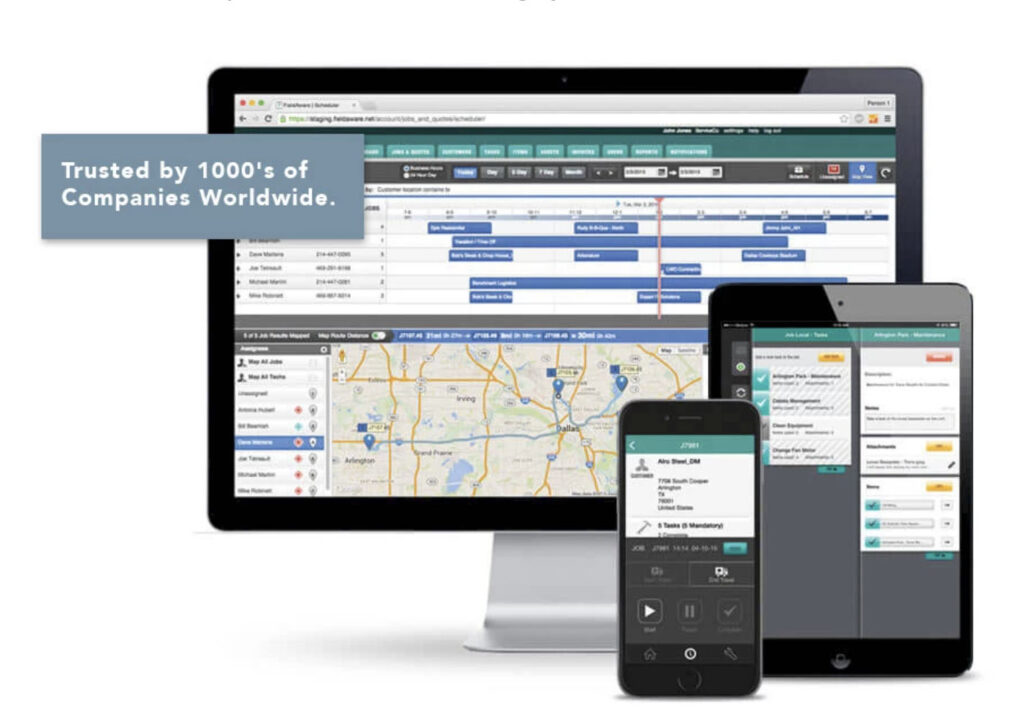2020 - The Year of the Lemon... and of Opportunity?
As the old adage goes, when the world gives you lemons make lemonade. However, knowing when is the right time to open up your lemonade stand is the key. Marc Tatarsky, FieldAware explains more…
The Impending Skills Shortage – What Can You Do Today?
Arguably, the strain on the technical service workforce, driven by the pace of tenured baby boomer retirements and a skills shortage pushed by an inability to attract younger, tech-savvy workers, is still one of the greatest threats facing service organizations. Field service teams of all sizes have recognized the skills gap as a threat to their stability. They know it’s both real and problematic. But most organizations haven’t had a preemptive plan in place to be actively or effectively tackling the issue.
The skills shortage debate has existed for some years now. We’ve found that many organizations are merely running in place. Throughout economic history, talented humans have been a source of innovation and advancement, with their skills being the impetus for economic growth. This reliance on talent is even more prevalent in the service industry, where the skilled technician is the most valuable asset. Ironically, although most field service leaders recognize the significant threat the talent shortage poses, many don’t have a game plan to attack the problem.
Historically, as organizations scramble to meet their talent needs, many have resorted to adjusting their education and experience requirements to fill roles. Also, they have adapted their execution model to leverage and retain seasoned resources. Is this a sustainable approach? Have we been presented with a new window of opportunity to address the challenge systemically?
Making Lemonade Out Of Lemons…
There is no doubt that 2020 has given us more than our fair share of lemons. However, is the operating and economic environment created by the global Covid-19 pandemic accelerating the opportunity to address one of the biggest lingering threats to service organizations?
How have the unexpected dynamics of the global pandemic altered the forces impacting the global FSM skills shortage? Is there an opportunity to embracing the changing dynamics and take the bushels of lemons provided by 2020 and make some lemonade by finally addressing the skills shortage in a manner that has a lasting effect?
Let’s take a look at some of the unexpected ramifications that have shaped the current field service industry due to reacting to and adapting to the global pandemic. Field service has adapted to the throes of 2020 by adjusting operating and organizational changes including:
- Faster uptake of video conferencing
- Broader acceptance of remote workers and diagnostics
- Increased focus on field service automation
- Rapid adoption of new collaboration tools
- Increased unemployment
Each of these factors impacts an organization’s ability to address different challenges associated with the skills shortage.
Faster uptake of video conferencing
In today’s forced socially distant operating environment, organizations and workers of all ages have been required to adapt to video conferencing to get even the most basic of activities completed. Whether it is daily check-in/status meetings, a group brainstorming session, or even an office happy hour, video conferencing has quickly become the norm leading the way for new work processes.
Broader acceptance of remote workers and diagnostics
In addition to organizations changing their operating models, customers have become more flexible and accommodating too. The level of customer acceptance of remote workers and diagnostics has increased dramatically, and service organizations have an opportunity to expand the scope of these types of activities as part of their response to skills shortages, among other things.
Increased focus on automation
Intelligent automation is an economic game-changer for field service organizations of all sizes, especially during these strained operating times. Executives recognize such advances will bring multiple benefits. Still one, unexpected benefit may be building a field service hub infrastructure that is nimble and able to address the skills shortage through the adoption of new technology while simultaneously creating an attractive work environment for tech-savvy workers.
Rapid adoption of collaboration tools
As is the case with video conferencing – organizations, employees, and customers are becoming more and more exposed to and reliant on collaboration technologies. The rapid (sometimes forced) adoption of screen sharing and remote learning tools, including AR and VR technologies, provides service organizations a new toolset to deliver services and creatively address skill shortages.
Increased unemployment
While this may be one of the most unpleasant realities of the global pandemic, the current unemployment environment provides many service organizations with a reprieve on workforce hiring pressure. With increased access to available talent, organizations can reposition their roles to attract tech-savvy talent and adapt their execution model to leverage and retain seasoned resources.
Is It Time to Open Your Lemonade Stand?
While the aging workforce has been an issue of growing concern due to the pace of baby boomer retirement, the current economic environment offers a window of unexpected opportunity to accelerate and shore up plans to address the skills deficit. While the idea of capitalizing on the global pandemic might seem counterintuitive, it may just be the catalyst needed to move the needle for many service organizations.
Further Reading:
- Read more News and Features from FieldAware
- Visit FieldAware’s website
- Read more by Marc Tatarsky
- Read more about digital transformation in service
- Read more about field service strategies

See FieldAware in action by requesting your demo now.
FieldAware is a top-rated mobile field service management software that lets you easily schedule and dispatch field workers, assign jobs, invoice customers and more.


